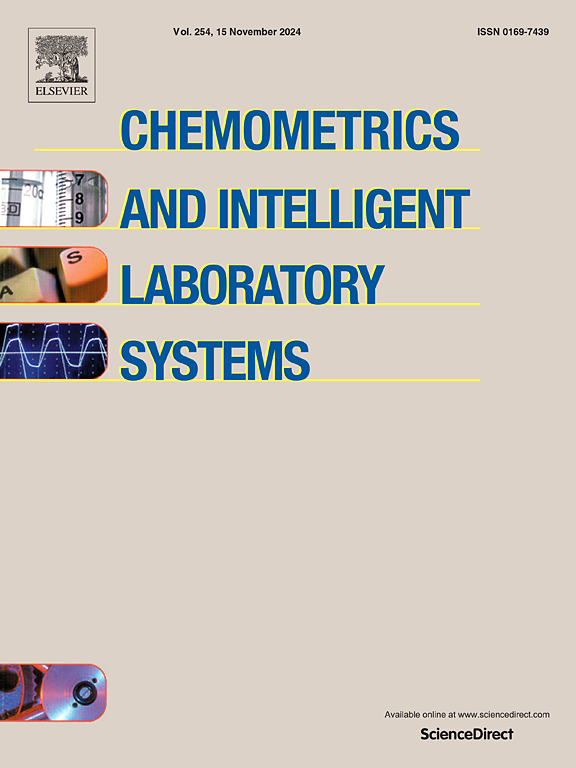Deep matrix factorization considering dynamic constraints to complete missing data of complex industrial processes
IF 3.8
2区 化学
Q2 AUTOMATION & CONTROL SYSTEMS
Chemometrics and Intelligent Laboratory Systems
Pub Date : 2025-05-23
DOI:10.1016/j.chemolab.2025.105433
引用次数: 0
Abstract
In the complex industrial processes, data loss is an unavoidable issue. Due to the lengthy process flow and complex reaction mechanisms, traditional data completion methods fail to deliver satisfactory results when data loss occurs. To address this challenge, this paper proposes deep matrix factorization considering dynamic constraints (DMFDC). This algorithm combines traditional matrix factorization with artificial neural networks, leveraging the strengths of neural networks to approximate nonlinear mappings in latent variable models and utilizing all available information to minimize discrepancies between raw and generated data. Additionally, DMFDC accounts for the dynamic characteristics of the complex industrial system, employing differential operations to transform irregularly changing industrial data into a more stable sequence, thereby enabling the model to better capture data evolution patterns. This approach allows DMFDC to intelligently address the issue of missing dynamic data in the complex industrial process and to predict missing values more accurately. To evaluate its effectiveness, we conducted case studies under various missing data conditions based on a digestion dataset collected from actual alumina production sites. The results indicate that DMFDC achieves higher data completion accuracy than other methods, confirming the applicability of our approach in diverse situations involving missing data.
考虑动态约束的复杂工业过程缺失数据补全的深度矩阵分解
在复杂的工业过程中,数据丢失是一个不可避免的问题。传统的数据补全方法由于处理流程长、反应机制复杂,在发生数据丢失时无法达到满意的补全效果。为了解决这一挑战,本文提出了考虑动态约束的深度矩阵分解(DMFDC)。该算法将传统的矩阵分解与人工神经网络相结合,利用神经网络的优势来近似潜在变量模型中的非线性映射,并利用所有可用信息来最小化原始数据和生成数据之间的差异。此外,DMFDC考虑了复杂工业系统的动态特征,采用微分运算将不规则变化的工业数据转换为更稳定的序列,从而使模型能够更好地捕捉数据演化模式。这种方法允许DMFDC智能地解决复杂工业过程中缺少动态数据的问题,并更准确地预测缺失值。为了评估其有效性,我们基于从实际氧化铝生产基地收集的消化数据集,在各种缺失数据条件下进行了案例研究。结果表明,DMFDC比其他方法获得了更高的数据补全精度,证实了我们的方法在涉及缺失数据的各种情况下的适用性。
本文章由计算机程序翻译,如有差异,请以英文原文为准。
求助全文
约1分钟内获得全文
求助全文
来源期刊
CiteScore
7.50
自引率
7.70%
发文量
169
审稿时长
3.4 months
期刊介绍:
Chemometrics and Intelligent Laboratory Systems publishes original research papers, short communications, reviews, tutorials and Original Software Publications reporting on development of novel statistical, mathematical, or computer techniques in Chemistry and related disciplines.
Chemometrics is the chemical discipline that uses mathematical and statistical methods to design or select optimal procedures and experiments, and to provide maximum chemical information by analysing chemical data.
The journal deals with the following topics:
1) Development of new statistical, mathematical and chemometrical methods for Chemistry and related fields (Environmental Chemistry, Biochemistry, Toxicology, System Biology, -Omics, etc.)
2) Novel applications of chemometrics to all branches of Chemistry and related fields (typical domains of interest are: process data analysis, experimental design, data mining, signal processing, supervised modelling, decision making, robust statistics, mixture analysis, multivariate calibration etc.) Routine applications of established chemometrical techniques will not be considered.
3) Development of new software that provides novel tools or truly advances the use of chemometrical methods.
4) Well characterized data sets to test performance for the new methods and software.
The journal complies with International Committee of Medical Journal Editors'' Uniform requirements for manuscripts.

 求助内容:
求助内容: 应助结果提醒方式:
应助结果提醒方式:


